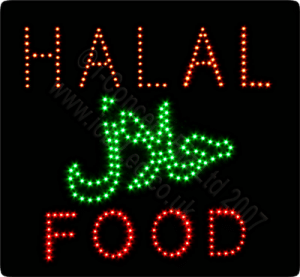By Joseph Moss, International Banker
How much do you know about the last meal you ate? While it was most likely satisfying, do you know where all the food on your plate and all its ingredients came from? And are you confident that this food was prepared safely and ethically? Thanks largely to the qualities inherent in the blockchain, it will soon be much easier to answer those questions. Indeed, with this distributed-ledger technology enabling the increasingly popular—and necessary—task of tracking and tracing food, we as consumers are gaining more crucial insights into the provenance of what we eat than ever before.
For food companies, the traceability of their products has never been more important than it is today. But for the most part, managing data pertaining to this part of their businesses remains decidedly antiquated—with paper records, manual inputs and easily manipulable databases still commonplace. And given the sheer complexities of supply chains today, ensuring the integrity of this data from the source to the consumer has become virtually impossible. As such, the potential for various fraudulent claims surrounding food products has become too significant a global problem to ignore.
“Even when companies use software, they still rely on stakeholders providing honest and accurate information, which is vulnerable to human error and record tampering,” explained Dock, a firm using blockchain and other technologies to enable the issuance of fraud-proof credentials. “Many actors keep their own record of transactions, and there is no unified source of information that is accessible between all relevant parties. These problems are what often lead to food contamination.”
This is where blockchain is proving to be a game-changer. By enabling the safe and accurate tracking of food products along every stage of the supply chain, the technology can offer much higher levels of quality assurance than was previously possible. Effectively an immutable, tamper-proof ledger for storing data, the stronger data security offered by blockchain vis-à-vis other types of ledgers and databases means that retailers, consumers and all relevant stakeholders can be wholly confident in the integrity of the data at all times and that the records have not been compromised for nefarious purposes. Indeed, the crucial use of cryptography within blockchain systems means that any changes or updates made to the ledger can always be traced.
The pivotal use of blockchain in food traceability, therefore, is dramatically changing the relationship that we, as consumers, have had with our food. We no longer have to rely on blind faith that the “free-range” label on the carton of eggs we consume for breakfast is genuine and that the product has not been sourced from battery-cage hens. Instead, we can increasingly use our smart devices to scan the QR (Quick Response) code printed on each product sitting on a supermarket shelf to access blockchain-powered data, thus enabling us to verify potentially vast amounts of information about the origins of the products.
In the case of eggs, that data could be related to the identity and quality of the farm from which they came, the methods used to collect and distribute them, information about the wider farming community at their source and any organic certifications received. Data can be invoked to answer serious questions regarding any product’s origins and the exact ingredients it contains, enabling companies to not only guarantee product quality to consumers and other concerned parties but also enhance their own reputations and earn consumers’ trust over the long term.
And with food certification being a crucial component of many of the world’s different food cultures, food traceability could be a godsend. The world’s two billion Muslims, for example, eat only food deemed halal—that is, food permitted under Islamic law—with halal certification a popular method for credible organisations to rubber-stamp a company’s products and services as fit for lawful consumption. This certification thus gives consumers confidence and security that they are continuing to abide by the laws of their faith when purchasing halal products. Indonesia, which is home to the world’s largest Muslim population, for instance, typically uses the halal-certification scheme by BPJPH (Indonesian Religious Affairs Ministry’s Halal Product Assurance Agency), which involves inspection and testing by an independent halal audit agency and a further determination of satisfying halal principles by MUI (Majelis Ulama Indonesia), Indonesia’s top council of Islamic scholars.
With such stringent food specifications in mind, then, blockchain-powered solutions such as OneAgrix’s end-to-end platform, which provides traceability and transparency from farm to fork, are now coming to the fore to add a crucial layer of trust and safety for halal products. A quality-food, faith-based trade ecosystem and digital platform, OneAgrix’s ecosystem partners include supply-chain track-and-trace software firm Inexto, blockchain and data specialist OriginTrail and independent UK-based halal certification and quality assurance body Halal Certification Organisation (HCO).

In December, the partners successfully showcased the world’s first steak with “DNA traceability” that could be tracked across the supply chain from a UK farm all the way to a Dubai restaurant. Inexto’s identification technology traced both the product and the animal’s DNA (deoxyribonucleic acid) through the supply chain to identify the type and origin of the meat, the identities of the farm and the meat processor, the authenticity of the halal certifications, and the health certificates required for processing and export. All the food data, including certification, was securely stored on OriginTrail’s blockchain-powered network operating system.
And given the complexities of today’s food supply chains, which cause food producers and suppliers to remain largely disconnected from each other, blockchain-secured traceability could be a lifesaver by solving a series of serious and longstanding supply-chain challenges pertinent to the global food industry. With food contamination, foodborne illnesses and spoilage being rife in some parts of the world, for instance, blockchain data can verify pain points along the supply chain where these problems have typically arisen, thus significantly helping to address those specific areas.
“Traceability helps to reduce spoilage, contamination and decrease foodborne illness risk by identifying issues before they reach the end consumer,” explained Swiss blockchain and traceability specialist Authena. “When unsafe food slips through the system and winds up in consumer’s stomachs, it can create problems for brands, lead to regulatory action and even force the closure of some businesses. Traceability allows operatives in the food industry to quickly identify the source of an issue and correct it before it causes widespread harm to public health.”
Indeed, the seriousness of such issues has prompted governmental bodies to step in and designate additional traceability requirements as mandatory for certain foods. The Food Safety Modernization Act (FSMA), signed into law in 2011, gave the U.S. Food and Drug Administration (FDA) new authority to regulate how foods are grown, harvested and processed. “About 48 million people in the US (1 in 6) get sick, 128,000 are hospitalized, and 3,000 die each year from foodborne diseases, according to recent data from the Centers for Disease Control and Prevention. This is a significant public health burden that is largely preventable,” the FDA states on its website, adding that the FSMA “is transforming the nation’s food safety system by shifting the focus from responding to foodborne illness to preventing it”.
As such, the FDA is implementing the FSMA through nine major rules, one of which is Requirements for Additional Traceability Records for Certain Foods, which establishes traceability record-keeping requirements beyond those in existing regulations for persons who manufacture, process, pack or hold foods included on a specially designated Food Traceability List (FTL). And in 2020, the FDA established a New Era for Smarter Food Safety Blueprint, with tech-enabled traceability as one of the blueprint’s four key elements.
Again, such requirements provide fertile ground for blockchain-based traceability solutions to flourish and, ultimately, prove instrumental in tracing food products back to their origins and potentially saving lives. “The US FDA has recently announced the Food Traceability Rule, which requires certain food types to have tracking and tracing,” OneAgrix’s chief executive officer, Diana Sabrain, recently said. “Although compliance for this new requirement is a few years away, our pilot project shows that this comprehensive end-to-end food visibility is commercially viable today and sets the gold standard.”
Blockchain has had its fair share of proponents and critics over the last decade. But what is becoming increasingly clear is that the technology has a well-defined set of characteristics that, if leveraged correctly, can prove hugely valuable to its stakeholders. Food traceability appears to be one such use case that could see blockchain play a critical role in its evolution over the coming years.




